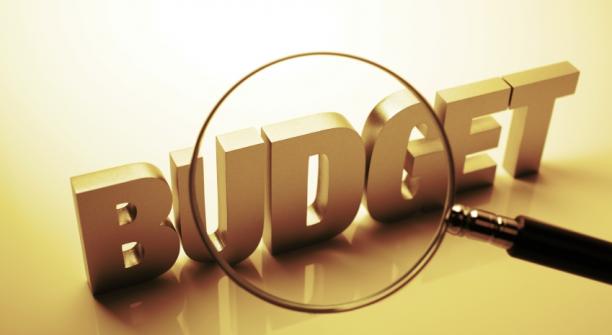Key to the Minister’s new paradigm is bringing expenditure into line with the available revenue stream and attempting to control the size of the budget deficit that for the outturn of 2017 is estimated to be TT$12.643 billion.
Total revenue has been budgeted at TT$45.74 billion against the estimated outturn for 2017 of TT$37.84 billion. Of this sum TT$37.3 billion has been identified by the Minister as core revenue meaning that it is derived from taxation, royalties, and custom duties. The difference is expected to come from borrowing on the domestic market (TT$4.5 billion) together with the sale of assets (CLICO assets) and drawdowns from a restructured HSF of up to TT$7.5 billion.
Total expenditure has been budgeted at TT$50.5 billion against the estimated outturn for 2017 of TT$48.4 billion.
The expected fiscal deficit for 2018 is the difference between income and expenditure and amounts to TT$4.76 billion. This represents 3.1% of GDP (2017 outturn: 8.4% of GDP).
Revenue estimates are predicated on an oil price of US$52 per barrel and a gas price of US$2.75 per MMBtu. These figures are both below the IMF and World Bank forecasts for oil and gas prices.
Breaking Down The Revenue Estimate For 2018
Based on the Minister’s assumptions total revenue can be broken down into three constituent parts.
| Source | TT$ (Billions) |
| Oil Revenue | 6.412 |
| Non-Oil Revenue | 32.910 |
| Capital Revenue | 6.419 |
| Total Revenue | 45.741 |
The Main Components Of Expenditure
Total payments net of capital repayments and sinking fund contributions are budgeted at TT$50.501 billion. The main components of this sum and the percentage they represent of the total budgeted expenditure are as follows:
| Area | TT$ (Billions) | % |
| Education and Training | 7.2905 | 14.44 |
| National Security | 6.2371 | 12.35 |
| Health | 6.0278 | 11.94 |
| Public Utilities | 3.5454 | 7.02 |
| Works and Transport | 3.0912 | 6.12 |
| Rural Development and Local Government | 1.8494 | 3.66 |
| Housing | 1.0052 | 1.99 |
| Agriculture | 0.5446 | 1.08 |
Motor Vehicles And Motorcycles
During 2017 35,000 motor vehicles have been imported into Trinidad and Tobago at a cost of US$500 million in foreign exchange. Perhaps to dampen demand the Minister announced several changes to the tax provisions that relate to motor vehicles and motorcycles.
The main changes in respect of motor vehicles and motorcycles are as follows:
- The incentives to import CNG and Hybrid Vehicles are now restricted to vehicles with an engine size less than 1,599cc.
- The motor vehicle tax and custom duty on motor vehicles with an engine size exceeding 1,599cc but less than 1999cc will increase by 25%.
- Motorcycles with engine sizes less than 300cc will be exempt from all tax and duties.
These measures will take effect from the 20th October 2017. However, there is a moratorium up to the 31st December 2017 for vehicles already in transit to Trinidad and Tobago.
In addition, the inspection fee for motor vehicles will increase from TT$165 to TT$300, and the law requiring inspection will be strictly enforced. This measure is intended to take effect from the 1stDecember 2017.
The Import Duty On Tyres
The customs duty on the import of tyres into the country is to be harmonised at 30% whether the tyres are new or foreign used. In addition, an environmental tax of TT$20 per tyre will be levied on all tyres imported. This additional tax will be used to finance suitable measures to dispose of old tyres in an environmentally friendly manner.
These measures will take effect from the 1st December 2017.
The Fuel Subsidy And Wholesale Margins For Fuel
The Minister proposed that from 2018 the price of the five categories of fuel available in Trinidad and Tobago (premium, super, regular, diesel, and kerosene) will fluctuate with the price of oil and the price of refined products.
The effect of a further reduction in the fuel subsidy and the increase in margins will increase the price of super gasoline from TT$3.58 to TT$3.97 per litre and the price of diesel from TT$2.30 to TT$3.41 per litre.
These changes come into effect immediately.
Fiscal Regime For The Energy Sector – “The Grass Is Growing But The Horse Is Starving”
While gas is being extracted at the rate of 3 billion cubic feet per day and oil at over 70,000 barrels per day the main energy companies operating in Trinidad and Tobago are not expected to pay corporation tax for the next seven years.
From the 1st December 2017 the Minister plans to address this by introducing a 12.5% royalty applicable across the board on the extraction of all gas, condensate, and oil. In addition, to avoid cheating the fair market value for oil and gas for the computation of the royalty will be fixed by the Petroleum Pricing Committee. This measure is considered necessary to avoid the possibility of tax leakage caused by irregular transfer pricing techniques. This is a subject the Minister has mentioned in previous budget presentations particularly in relation to the export of LNG.
Changes To The Corporation Tax Regime
With effect from the 1st January 2018 the corporation tax rate is harmonised at 30% irrespective of the size of a company’s profits, and the rate of corporation tax payable by commercial banks has been increased to 35%.
The Gaming Industry
As an interim step to tackle non-compliance and while new legislation governing the area is being debated, the Minister made a number changes to the rates payable on tables and electronic machines. These new rates will come into effect on the 1st January 2018 and will be strictly enforced to improve the current industry compliance rate of 10%.
License Fees For Private Hospitals
Under the Private Hospitals Act, the annual license fee payable by a private hospital is currently set at TT$150 per year.
With effect from 1st January 2018 the rates will be significantly increased according to the number of beds as follows:
- Less than 30 beds: TT$25,000 per annum.
- Between 30 beds and 60 beds: TT$50,000 per annum.
- More than 60 beds: TT$100,000 per annum.
The new rates will not apply to institutions classified as convalescent or chronically-ill hospitals.
In addition, the rates payable for those committing an offence under the Private Hospitals Act have also been significantly increased.
The Upgrade Programme For Hotels And Guest Rooms
With effect from the 1st January 2018 the rates of reimbursement payable under the Trinidad and Tobago Hotel and Guest Room Stock Upgrade Program have been increased from 25% to 50%, and the maximum reimbursement limit raised from TT$750,000 to TT$1.5 million.
The rates in respect of the Small Approved Tourism Properties Programme have been increased from 20% to 40%, and the maximum reimbursement limit raised from TT$75,000 to TT$150,000.
Promoting Exports
The Minister proposes to establish a facility to allow eligible exporters to access foreign exchange effective from the 1st January 2018. The facility will be capitalised with an injection of US$100 million. In addition, the Minister proposes to re-establish export allowances to manufacturers that would allow for the reduction on tax for revenues generated from incremental exports to existing markets.
Expanding Local Food Production – The Agricultural Financial Support Programme
An Agricultural Financial Support Programme will be established with effect from the 1st January 2018. This programme will support new and existing farmers with grants of up to TT$100,000. To encourage the establishment of larger farms, the Minister plans to remove the restriction of 100 acres of land to receive exemptions from tax on income from approved agricultural holdings.
Stimulating Private Construction In The Housing Sector
A cash incentive will be provided of up to TT$100,000 for all approved developers who construct housing units in accordance with designs and specifications and prices set by the Government. This measure will take effect from the 1st January 2018.
Closing thoughts – time to consider your investing strategies
Firstline Securities Limited offers comprehensive coverage of local and international markets with a bias for the energy sector. Firstline offers many unique opportunities to put surplus cash to work either as your asset manager or investment advisor. Please contact us for more details at info@firstlinesecurities.com or at 868.628.1175, we can discuss your investment needs in detail and craft a portfolio that makes sense for you. We look forward to hearing from you.



